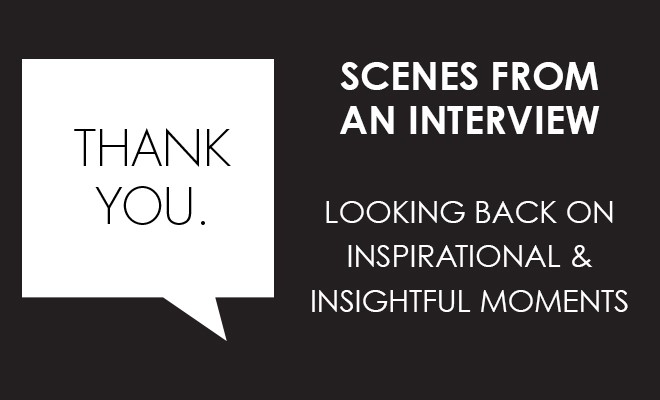
People
Scenes from an Interview: Inspirational & Insightful Moments
by Gus Mollasis
Thank you.
While they are two words I do sometimes forget to say, I am always thankful to live in this wonderful town and be able to talk with so many fascinating people that truly make Sarasota the great and giving place it is. As Betty Schoenbaum, one of our most beloved philanthropists, has told me many times, “Sarasota is the city with a heart on it.”
During this holiday season, there’s no better time to celebrate our blessings and be thankful. For me, it’s the perfect time to look back fondly at some special insights, inspirational moments and life lessons learned from some of the incredible people I have interviewed throughout the years.
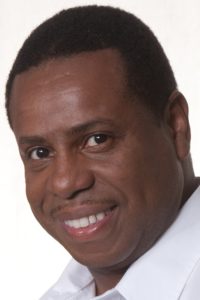 FEBRUARY 2011: WESTCOAST BLACK THEATRE’S NATE JACOBS
FEBRUARY 2011: WESTCOAST BLACK THEATRE’S NATE JACOBS
How important is it for the black community in Sarasota to have a voice in local theater?
The purpose of black theater is to keep alive the voices of Langston Hughes, James Baldwin, August Wilson, the stories, the experiences, the contributions of African Americans. And a lot that has been told through theater. If the youth doesn’t get exposed to them, those legacies will die. And the purpose of black theater is to be the steward of that work, and expose it to generations to come.
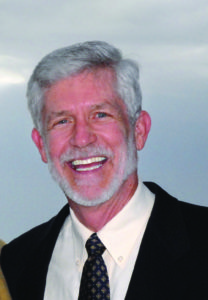 FEBRUARY 2012: PHILANTHROPIST DENNIS MCGILLICUDDY
FEBRUARY 2012: PHILANTHROPIST DENNIS MCGILLICUDDY
Do you have a favorite quote or saying that sums up your life’s philosophy?
There are many things that can catch your eye, and only a few that capture your heart. Pursue those. I think about that regarding our philanthropic work. There are so many great organizations and it is impossible to be involved with them all, so I follow my heart and it leads me to those that I feel extra connected.
Why do both of you (wife Graci McGillicuddy) get so involved in so many causes?
Sometime in my adult life I had the realization that helping other people was not just a good thing and something I should do, but it brought great joy to me. Because I was fortunate to be successful in business and I have the time and wherewithal, it just kind of flows naturally. Both me and Graci are in good health and we lead active lives. We are the luckiest people in the whole world having been blessed in so many ways. My parents were also very giving people, and I was blessed to be raised in the family I was raised in. The things we get involved in actually change us and it keeps our feet on the ground and connected to what our values are.
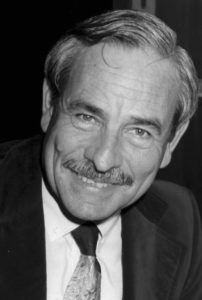 DECEMBER 2012: SARASOTA VISIONARY GIL WATERS
DECEMBER 2012: SARASOTA VISIONARY GIL WATERS
What is the thing we can’t afford to lose?
The senior cultural group. When I came here, the West Coast Symphony (now Sarasota Orchestra) was one year old. The Players was 15 years old. Now the various cultural activities are deeply rooted and they’re the ones that keep attracting people who instantly fall in love with this town. They support what they love and when they pass on, there are one, two or three people that take their place. That phenomenon is what makes Sarasota what it is.
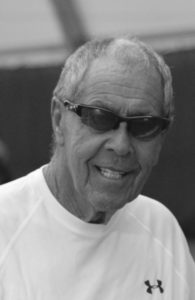 JANUARY 2014: TENNIS LEGEND NICK BOLLETTIERI
JANUARY 2014: TENNIS LEGEND NICK BOLLETTIERI
When you are observing and teaching your tennis students while working with multiple players with varied talents and the tennis balls are flying in the air, how do you keep it balanced and keep them all motivated?
That’s the trick. You have to have the feelings for the other. Don’t compare that person to the other person. You have to react to that person and make that person feel comfortable even though they may be way above or way below the other player. That’s the trick and that’s not easy. That’s a certain gift. And only a few coaches can do that. You have to be very quick with your remarks, because they can feel if you are jiving them or not.
After all the serves have been aced and the five set matches have been played, how do you want to be remembered?
I want to be remembered for giving people opportunity and providing them hope regardless of their financial background. You have to deal with the cards that you are dealt with. Some are dealt a full house, a Mercedes, parents with a lot of money. Some are dealt with a two, a seven or a nine or a ten card. You’ve got to turn those five cards into a winning combination rather than saying you don’t have a chance.
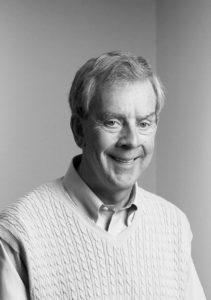 FEBRUARY 2014: PHILANTHROPIST BOB ROSKAMP
FEBRUARY 2014: PHILANTHROPIST BOB ROSKAMP
Is there a mantra that you live by?
“It’s a day wasted unless you’ve laughed; it’s a day wasted unless you’ve learned something new; it’s a day wasted unless you’ve found something or someone new to love; and it’s a day wasted unless you’ve made the world a better place.”
What is your advice to the entrepreneurs and dreamers who want to accomplish big things?
Find something that does make the world a better place. There are a lot of entrepreneurs who do it for gain, but finding something where you can give back makes it so much more enjoyable for anyone. Persistence overcomes most of the problems you will run into. You have to believe in what you’re doing and push forward until you find a way to get to your goal and dream. At the Roskamp Institute (for Alzheimer’s research), 90% of the paths that the research takes them on leads to dead ends, but they learn something in those dead ends that help them find a way forward.
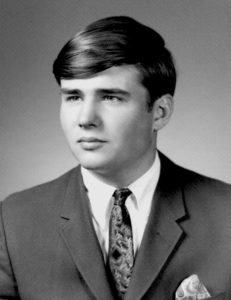 MAY 2014: PHILANTHROPISTS PING FAULHABER AND THE LATE DR. FRITZ FAULHABER
MAY 2014: PHILANTHROPISTS PING FAULHABER AND THE LATE DR. FRITZ FAULHABER
You are both very philanthropic. Describe why you give so much back to the community and the causes that you passionately support.
Fritz: We support a number of causes, but our main interest is in hands-on science and hands-on technology. The more kids and young people that we can get interested in careers in science, the better everybody is going to be off. It’s kind of like that old story, “Give a man a fish and he can eat for the day. Teach him how to fish and he eats for life.”
I think there are too many fish passed out and not enough lessons in fishing. It’s what motivated us and it is what made the U.S. a very special place – that development and that ability to utilize science and technology to achieve wonderful things.
Ping: People often ask me why I came to America. I came for my graduate studies, but I stayed for the opportunity that America provides. With opportunity, you can work hard and use your talents to achieve things. Not everyone achieves success, but at least you have an opportunity.
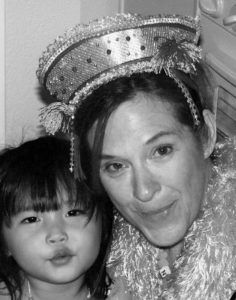 NOVEMBER 2014: HARRY POTTER ILLUSTRATOR MARY GRANDPRÉ
NOVEMBER 2014: HARRY POTTER ILLUSTRATOR MARY GRANDPRÉ
When people look at Harry Potter, what do you hope people see in him?
I hope that no matter where you are in your life, and no matter what you have been through, you can always draw on your strength. There is always something there, even if there’s a tiny bit left. I think he offers hope to kids and adults too, maybe in a really fun way.
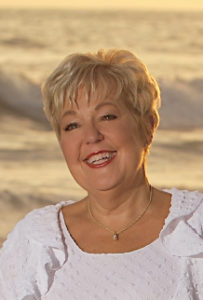 DECEMBER 2014: INSPIRATIONAL SPEAKER BARBARA GLANZ
DECEMBER 2014: INSPIRATIONAL SPEAKER BARBARA GLANZ
You have suffered the losses of a child and a husband. How did you get through those times?
Our little boy died at Christmas time and was buried on Christmas Eve. I was 28 years old when that happened, and in that same year and half period, I lost my dad, my mother-in-law, our Saint Bernard puppy and I found a lump in my breast. You think you can plan everything at 27; that your whole life can be planned. I would rather have given my own life than my child. It took me about four to five years to recover, although you are never completely whole. I learned that every day was a gift and I thank God that I woke up this morning. The only way I survived that time in losing our little guy, was a friend giving me a book called I Ain’t Much, Baby – But I’m All I Got. The author, Jess Lair, talked about living five minutes at a time. There were many days that I didn’t think I could get through a morning. My heart was so broken. But I could always do five minutes. It taught me to be fully in the present. From that moment on I have lived my life that way. When I am with somebody, I am with somebody. I’m not thinking about anything else. The other thing I realized was that I was hurting so much no one could ever hurt me this much again, and I will always be exactly who I am. I think that authenticity builds immediate bridges with people, so much that I have heartfelt friends all over the world. It’s my faith, family and friends that got me through it.
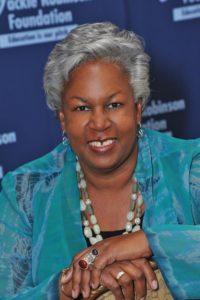 JANUARY 2015: “KEEPER OF THE FLAME” SHARON ROBINSON (JACKIE’S DAUGHTER)
JANUARY 2015: “KEEPER OF THE FLAME” SHARON ROBINSON (JACKIE’S DAUGHTER)
What is the difference between a champion and a hero to you?
The first time I heard this was at my father’s eulogy. At that time, you feel numb, and you really don’t hear it. But I heard it on TV a few days later, and I remember calling Reverend Jackson and saying, ‘My God those were really powerful words.’ The words that struck me the most were the difference between a champion and a hero. Over time it resonated with me on what it really meant. So many of our athletes we try to make them heroes but basically, they’re champions. They win something, and we give them applause and accolades, but we shouldn’t try to make them into our role models as examples of great character. The champion is carried on the shoulders of the people, while the hero lifts the people on his shoulders.
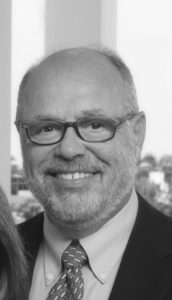 AUGUST 2015: FORMER WYETH CHAIRMAN & CEO BOB ESSNER
AUGUST 2015: FORMER WYETH CHAIRMAN & CEO BOB ESSNER
If you were the CEO of the world, what is the top thing you would do for the
betterment of the planet?
I would find a cure for Alzheimer’s disease. That’s what I worked on a lot. That’s really the meteor heading for Earth if you look at the demographics of what’s coming, as people like me get older. It’s frightening. The treatment for Alzheimer’s disease would deflect the whole curve of costs, of suffering, and of nursing homes. I think it would have the single greatest impact on our healthcare problems of anything we can do. It’s a tough problem because we don’t understand the brain very well.
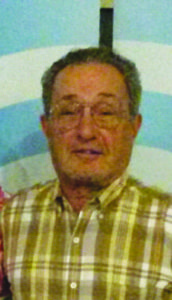 SEPTEMBER 2015: HOLOCAUST SURVIVOR, ARTIST & AUTHOR PIETER KOHNSTAM
SEPTEMBER 2015: HOLOCAUST SURVIVOR, ARTIST & AUTHOR PIETER KOHNSTAM
What will people learn about your journey and your family’s story of survival when they read your book, A Chance to Live?
We are all part of the human race and a discrimination and attack on one person is to me an attack on all. What message I intended to convey is that the Nazis and other dictatorships can never take this one thing from us, the Jewish people, and that is hope. We don’t lose hope. We have to stand up.
We’re doing presentations with the book and we are now associated with the Anne Frank Center USA in disseminating education, awareness through exhibits and speeches. I’m doing this so that individuals will understand that this should never happen again. And how do we do that? We do that through educating.
The other reason I wrote the book is for my family and future descendants to understand and learn about their families and where they came from. It’s important for them to know how people who were stripped of everything were able to confront and overcome that.
In my parent’s case, they had to start over twice. They fled Germany in 1933 and then in 1942 from the Netherlands at a fairly young age striving to build their lives. How do you overcome these obstacles? Hard work. Strap up your boot laces. Educate yourselves and hopefully earn some money to support your children’s education so that we may move forward in fighting genocide, persecution and all those things that are so alive today in many places of the world. We must make sure that this hope cannot be killed. To think that a little country like Israel has been surrounded going back 3,000 years by big enemies, you wonder how have they survived. They have survived by working hard, educating and never losing hope.



You must be logged in to post a comment Login